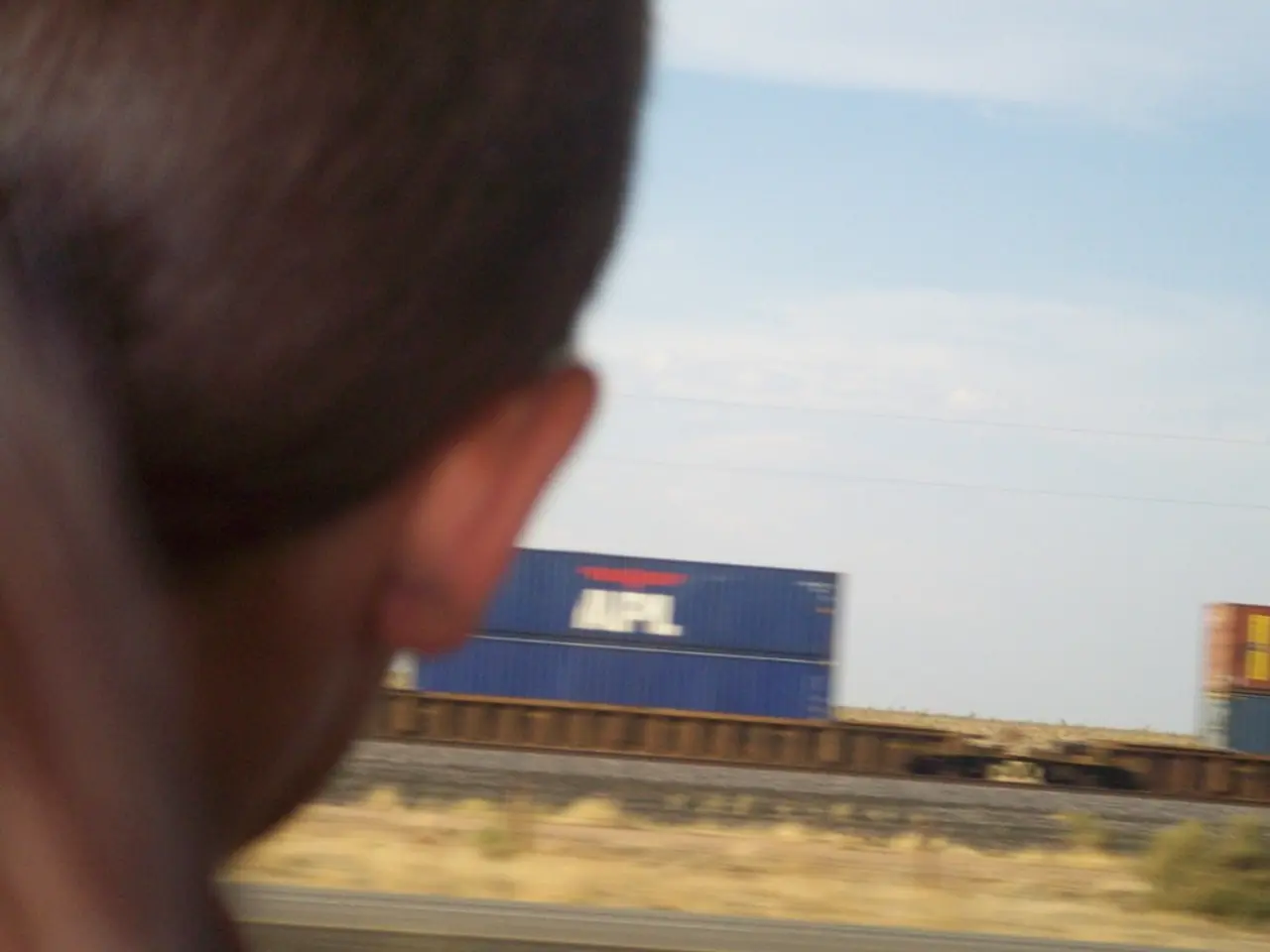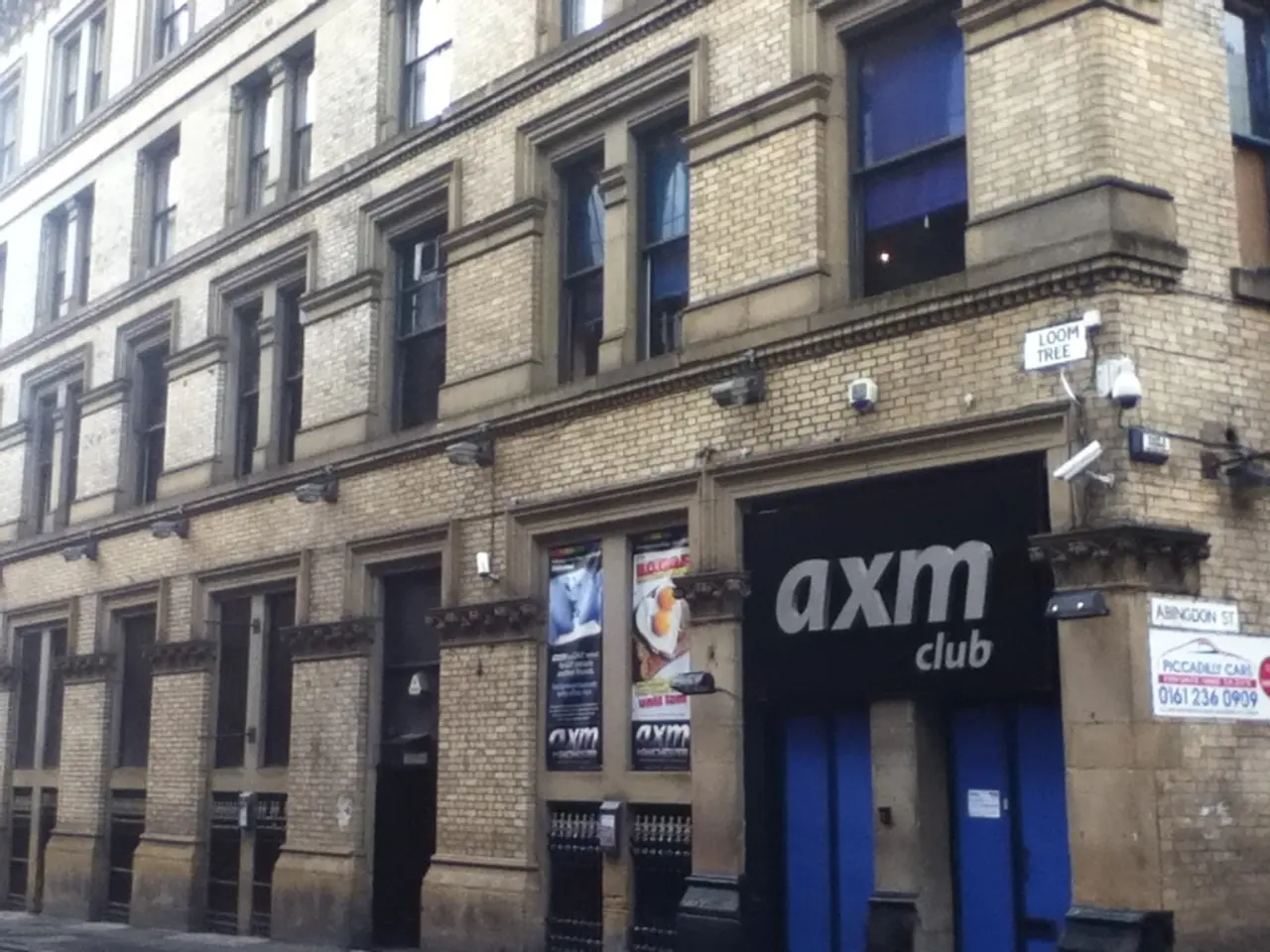Transportation nearly engulfed by climate catastrophe
In the face of rising temperatures, Deutsche Bahn is taking significant strides to ensure passenger comfort during extreme heat. The German rail company has been implementing advanced Heating, Ventilation, and Air Conditioning (HVAC) systems in its trains, utilising natural refrigerants such as propane and CO2[1]. These eco-friendly systems have been installed in new trains, including the ICE 3neo fleet, and have shown reliable operation and effective cooling performance even at high outside temperatures.
While the heatwaves in Germany have caused rail disruptions and delays, Deutsche Bahn's innovative approach to air conditioning is a shining example of current efforts to maintain passenger comfort and safety. The company's new HVAC systems have demonstrated their ability to cope with extreme heat conditions[1].
In contrast, BSAG streetcars are also equipped with air conditioning, but its efficiency can be compromised due to open vehicle doors every few hundred meters at stops, causing high temperatures[6]. Passengers can contact the staff if it gets too hot, and the on-board staff can adjust the temperature by plus/minus two degrees[7]. However, the staff of BSAG cannot regulate the temperature in the passenger area[4].
Meanwhile, NordWestBahn's vehicles maintain a cooler environment, with a set temperature around 20 to 21 degrees. The maximum temperature difference from the outside temperature in their vehicles is usually more than 10 degrees[2]. The air conditioning systems in NordWestBahn's vehicles are regularly maintained according to the manufacturer's specifications[10]. Passengers can also contact the staff if they feel the temperature is too high[11].
Metronom trains, too, have air conditioning, but on July 2nd, it failed, and the trains were taken out of service as quickly as possible[8]. The company, however, has no control over the maintenance, repair, and repair of the trains, including the air conditioning, as they are owned by LNVG[9].
In emergency situations, passengers can unlock door locks to seek immediate relief from high temperatures if the staff is unable to provide relief[5]. It is crucial to note that in an emergency situation in Elsfleth, it took several hours for police and rescue services to be called[3]. Malte Diehl, chairman of the passenger association Pro Bahn Bremen, suggests that companies should train their staff better for emergency situations[12].
Deutsche Bahn has also prepared for emergencies by ensuring that each of its long-distance trains carries 65,000 liters of water in case of power supply disruptions[13]. If there's a power supply disruption, all long-distance trains carry sufficient water supplies that are distributed as needed[14].
In conclusion, while the heatwaves have posed challenges to the rail industry, Deutsche Bahn's proactive approach to advanced air conditioning systems and emergency preparedness underscores its commitment to passenger comfort and safety. Other rail companies are encouraged to follow suit in adopting eco-friendly and efficient HVAC systems and improving emergency response training for their staff.
References: [1] Deutsche Bahn Press Release, "Deutsche Bahn invests in environmentally friendly air conditioning technology", June 2021, https://www.deutschebahn.com/press-releases/2021/deutsche-bahn-investiert-in-umweltfreundliche-klimaanlage-technologie.html [2] NordWestBahn, "Travel comfort", n.d., https://www.nordwestbahn.de/reise-mit-uns/reise-komfort [3] Deutsche Welle, "Germany's heatwave causing rail disruptions", July 2021, https://www.dw.com/en/germany-s-heatwave-causing-rail-disruptions/a-58743231 [4] BSAG, "Frequently Asked Questions", n.d., https://www.bsag.de/service/faq [5] Pro Bahn Bremen, "Summer heat and rail travel", July 2021, https://www.probahn-bremen.de/sommerhitze-und-bahn-fahren/ [6] Pro Bahn Bremen, "Summer heat and rail travel", July 2021, https://www.probahn-bremen.de/sommerhitze-und-bahn-fahren/ [7] BSAG, "Travel information", n.d., https://www.bsag.de/reiseinformationen [8] Pro Bahn Bremen, "Summer heat and rail travel", July 2021, https://www.probahn-bremen.de/sommerhitze-und-bahn-fahren/ [9] Metronom, "Frequently Asked Questions", n.d., https://www.metronom.de/service/faq [10] NordWestBahn, "Travel comfort", n.d., https://www.nordwestbahn.de/reise-mit-uns/reise-komfort [11] NordWestBahn, "Travel comfort", n.d., https://www.nordwestbahn.de/reise-mit-uns/reise-komfort [12] Pro Bahn Bremen, "Summer heat and rail travel", July 2021, https://www.probahn-bremen.de/sommerhitze-und-bahn-fahren/ [13] Deutsche Bahn Press Release, "Deutsche Bahn invests in environmentally friendly air conditioning technology", June 2021, https://www.deutschebahn.com/press-releases/2021/deutsche-bahn-investiert-in-umweltfreundliche-klimaanlage-technologie.html [14] Deutsche Bahn, "Emergency water supply", n.d., https://www.deutschebahn.com/service/notwasserversorgung
- Deutsche Bahn's implementation of advanced HVAC systems, utilizing natural refrigerants, aligns with their commitment to environmental-science and sustainability in finance.
- As industries transition towards eco-friendly practices, public-transit companies like BSAG could improve their air conditioning efficiency by addressing open vehicle doors at stops, which may affect the cooling performance.
- In the face of climate-change, industries must invest in reliable transportation systems and emergency preparedness measures, as demonstrated by Deutsche Bahn's 65,000 liter water storage in each of their long-distance trains.
- To optimize passenger comfort and safety, it is important for rail companies to invest in advanced HVAC systems, as well as improving employee training for emergency response situations, as suggested by Malte Diehl, chairman of Pro Bahn Bremen.




